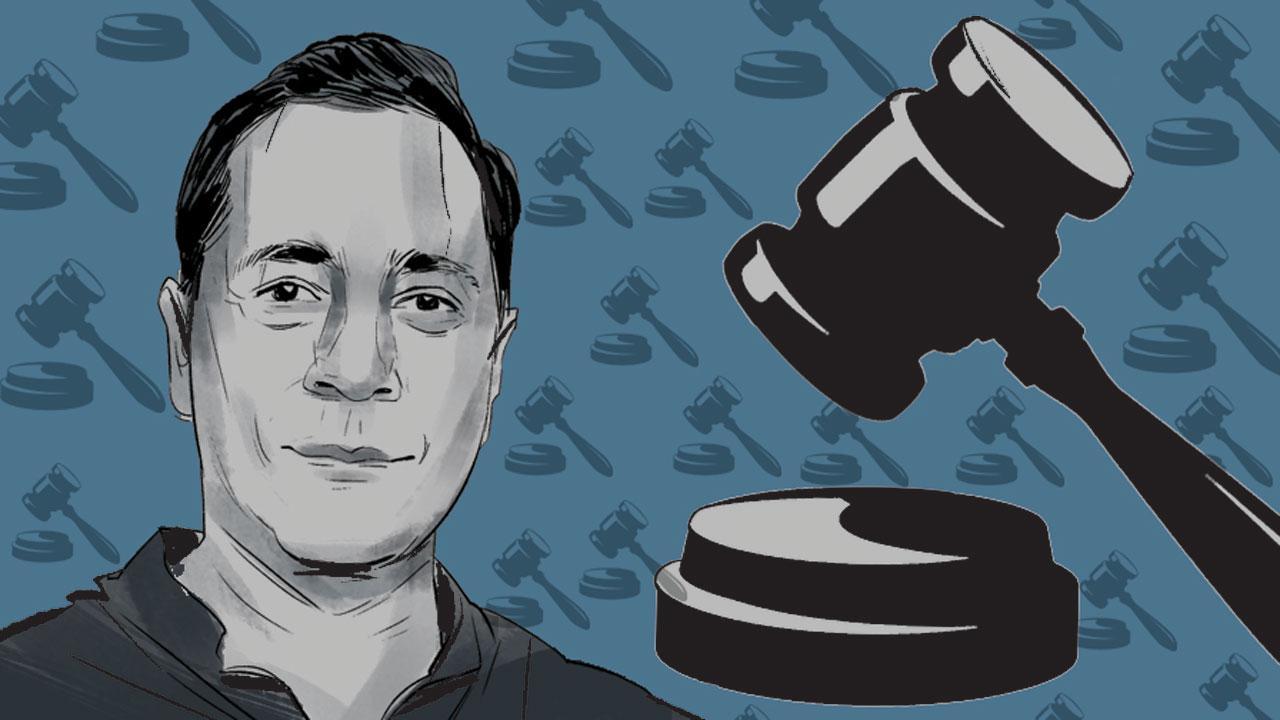The term “openly gay” is so intriguing, as if openness is the problem.

Illustration/Uday Mohite
![]() The Law Ministry objected to appointing Saurabh Kirpal a judge of the Delhi High Court, mostly because he is “openly gay” which could cause bias. Of course, if one were to characterise this as a bias against LGBT persons, the government would swiftly point to their other objection, that Kirpal’s partner is a foreign citizen. That is kind of funny given that the said partner is Swiss, and Switzerland is a metaphor for non-partisanship as in, “you don’t get to be Switzerland when it comes to a fight between me and my spouse”. I know. I make too many faltu jokes. So, getting serious then.
The Law Ministry objected to appointing Saurabh Kirpal a judge of the Delhi High Court, mostly because he is “openly gay” which could cause bias. Of course, if one were to characterise this as a bias against LGBT persons, the government would swiftly point to their other objection, that Kirpal’s partner is a foreign citizen. That is kind of funny given that the said partner is Swiss, and Switzerland is a metaphor for non-partisanship as in, “you don’t get to be Switzerland when it comes to a fight between me and my spouse”. I know. I make too many faltu jokes. So, getting serious then.
Considering, we haven’t lived in a society where people could publicly admit to being queer, until recently, there may be a presence of gay people in a field, without there being representation. The term “openly gay” is so intriguing, as if openness is the problem.
It is a truism that in India many things go, as long as they are not made overt. Somehow we have a great discomfort with something that is “openly” declared—which is to say, freely stated. That free-ness is often called ‘openness’ and leads to a reaction of “samjhti kya hai apne aap ko” (who does she think she is). What is the closed thing that “open-ness” opens? As long as something is covert, it allows unfair biases that privileged some sections to be disguised as “normal”. When those who have been minoritised make themselves heard and seen, the “normally” powerful feel disturbed and start accusing them of being biased.
The Geena Davis Institute did a study where they mixed men and women in a room, then asked men how many women had been present. When there were 20 per cent women, men saw 50 per cent. When it was 30 per cent, men felt there were 60 per cent. In a study by the American Council on Education, teachers were asked to call on boys and girls in class, 50/50. Boys complained that “girls were getting all the attention.” In 2016, the How Stuff Works podcast was accused of having too much content about women. In fact, only 21 per cent of their episodes had featured women, with 45 per cent featuring men and 34 per cent ungendered topics. In India around 93 per cent of corporate board membership and 90 per cent media leadership positions are held by forward castes, but reservation is constantly decried as biased.
Even the slightest tilt to equality, shows up inequality. One queer person in the room reveals that the room is heavily biased towards heterosexuals. If film critics stopped calling films “women-centric” or women’s films, but started saying male-centric or films by men, our view of the film world might change rather dramatically, but there would be protests of bias in favour of women, because the powerful like to decide what equality is, a bit subjectively.
The pretence of absolute objectivity is often a way of invalidating other positions and possibilities. To acknowledge and consider multiple subjectivities is the what the process of fairness, justice or inclusion involves. Surrounded as we are by multiple censorships, with routine take downs of content online, mob violence against diverse opinions and the increasing homogeneity of representation, the idea of diversity and inclusion needs to be framed not through corporate pablum, but cultural and political potency.
Paromita Vohra is an award-winning Mumbai-based filmmaker, writer and curator working with fiction and non-fiction. Reach her at paromita.vohra@mid-day.com
 Subscribe today by clicking the link and stay updated with the latest news!" Click here!
Subscribe today by clicking the link and stay updated with the latest news!" Click here!








